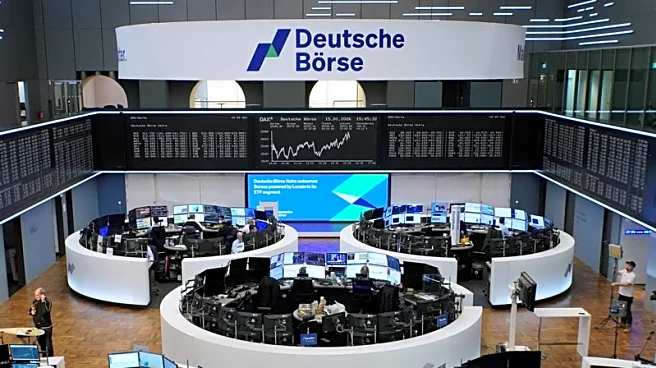What's Happening?
Researchers at Swinburne University of Technology have developed a new method to validate the output of a specific type of quantum computer known as a gaussian boson sampler. This type of quantum computer uses photons to compute probabilities, and the new validation method allows results to be verified using a conventional laptop computer. This breakthrough addresses the challenge of ensuring the accuracy of quantum computations, which could otherwise take millions or billions of years to verify using conventional computing methods. The researchers successfully validated the results of an experiment that would have required 9,000 years of calculation on contemporary supercomputers.
Why It's Important?
The development of scalable methods for validating quantum computers is crucial for advancing the field of quantum computing. Accurate validation ensures that quantum computers can be reliably used for complex calculations that are beyond the capabilities of conventional computers. This has significant implications for industries that rely on high-speed data processing and complex problem-solving, such as cryptography, materials science, and artificial intelligence. By improving the accuracy and reliability of quantum computations, researchers can enhance the practical applications of quantum technology, potentially leading to breakthroughs in various scientific and technological fields.
What's Next?
The next steps involve further refining the validation methods to ensure they can be applied to a broader range of quantum computing systems. Researchers may also explore how these methods can be integrated into existing quantum computing frameworks to enhance their reliability and efficiency. As quantum computing technology continues to evolve, ongoing research will focus on addressing errors and improving the 'quantumness' of these systems, which is essential for their widespread adoption and use in real-world applications.
Beyond the Headlines
The ethical and legal implications of quantum computing validation are significant, as accurate computations are essential for applications in sensitive areas such as national security and financial systems. Ensuring the integrity of quantum computations can prevent potential misuse or errors that could have far-reaching consequences. Additionally, the cultural impact of quantum computing advancements may lead to shifts in how society perceives technology and its role in solving complex global challenges.











